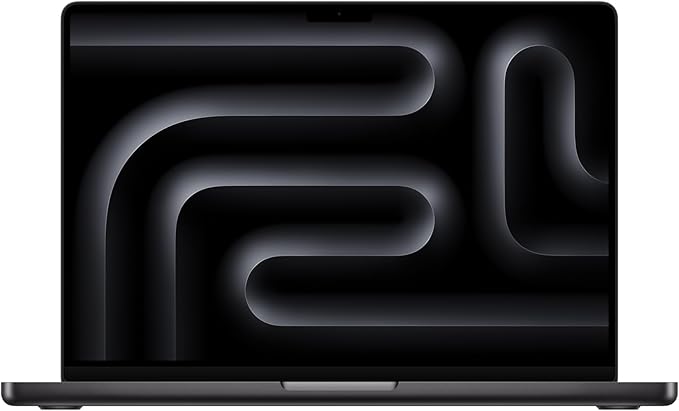If you spend your days writing code, running builds, and debugging endless loops of logic, you know how important a good laptop really is.
For Java programmers, performance isn’t just about speed — it’s about smooth multitasking, quick compile times, and reliability during long development sessions.
In this guide, we’ve handpicked the best laptops for Java programming in 2025, tested across real-world scenarios — from building large Java projects to running Docker containers, Android emulators, and full-stack dev environments.
Whether you’re a student learning Java or a senior developer managing complex builds, this list will help you find the right machine that fits your workflow and budget.
Also Read: Budget Laptops for PYTHON Programming
What to Look for in a Laptop for Java Programming
Before jumping into models, let’s talk about what really matters for Java developers. Ignore the marketing fluff — these are the specs that make a real difference.
| Key Component | Why It Matters for Java Devs |
|---|---|
| CPU (Processor) | Compiling Java projects needs both strong single-core and multi-core performance. Look for Intel Core Ultra, Ryzen 9, or Apple M-series chips. |
| RAM (Memory) | IDEs like IntelliJ or Eclipse love memory. Go for 16GB minimum, 32GB ideal. |
| Storage (SSD) | A fast NVMe SSD speeds up builds, indexing, and file access. |
| Display & Keyboard | You’ll stare at the screen and type for hours — comfort and clarity matter more than looks. |
| Battery Life | You don’t want to be plugged in 24/7 — aim for 8+ hours. |
| Ports & Connectivity | A mix of USB-C, USB-A, and HDMI/Thunderbolt keeps you ready for anything. |
Also Read: Java System Requirements
🏆 The Best Laptops for Java Programming in 2025
1. Apple MacBook Pro 14-inch (M3 Pro / M4 Pro)
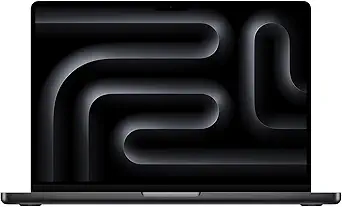
Best Overall Laptop for Java Developers
If you want power, battery life, and build quality in one package, the 2025 MacBook Pro 14 is tough to beat. It’s incredibly fast with Apple’s M3 Pro and M4 Pro chips, compiles Java projects like lightning, and runs silently even under heavy load.
Key Specs:
- CPU: Apple M3 Pro / M4 Pro
- RAM: 16–32 GB unified memory
- Storage: 1 TB NVMe SSD
- Display: 14.2″ Liquid Retina XDR
- Battery Life: Up to 18 hours
Pros:
- Blazing compile speeds
- Whisper-quiet and cool even under stress
- Outstanding battery life
- Fantastic display and build
Cons:
- Expensive at higher configs
- Limited ports compared to PCs
Verdict:
If you’re serious about development and can afford it, the MacBook Pro is hands down the most reliable option for Java programmers in 2025.
2. Dell XPS 15 (2025 Model)
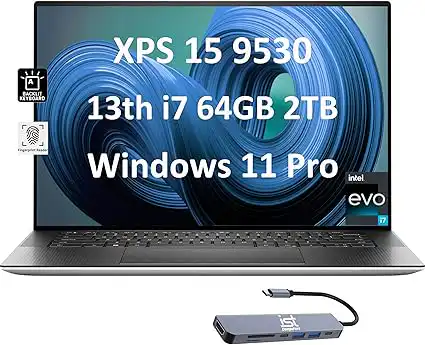
Best Windows Laptop for Java Development
The Dell XPS 15 remains a long-time favorite among developers. It’s elegant, powerful, and ideal for multi-environment setups — from running IntelliJ to spinning up Docker containers and databases.
Key Specs:
- CPU: Intel Core Ultra / Core i9
- RAM: 16–32 GB DDR5
- Storage: 1 TB NVMe SSD
- Display: 15.6” 16:10 OLED or IPS
- Weight: Around 1.8 kg
Pros:
- Beautiful, color-accurate display
- Premium design and keyboard
- Excellent Windows/Linux compatibility
Cons:
- Can run warm during long builds
- Premium pricing
Verdict:
A rock-solid Windows laptop that handles heavy IDE work and multitasking without breaking a sweat.
3. Framework Laptop 13 or 16 (2025 Edition)
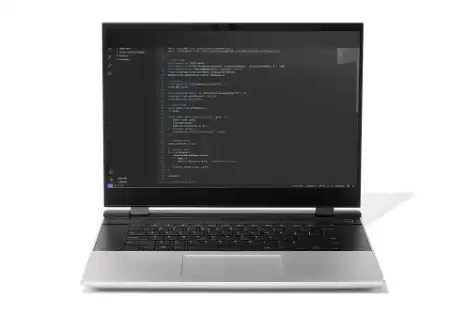
Best for Developers Who Love Upgrading
Framework’s modular design makes it the ultimate long-term choice. You can swap RAM, storage, ports, or even the mainboard when newer chips arrive. It’s eco-friendly, upgradable, and made by engineers who actually care about repairability.
Key Specs:
- CPU: AMD Ryzen AI 7 / Intel Core Ultra
- RAM: 16–32 GB (replaceable)
- Storage: 1 TB NVMe SSD (replaceable)
- Display: 13.5” or 16”
- Weight: Starts around 1.3 kg
Pros:
- Fully modular and user-upgradable
- Excellent keyboard and thermals
- Great Linux support
Cons:
- Not the fastest GPU performance
- Limited retail availability in some regions
Verdict:
If you’re the kind of developer who likes to tinker and future-proof your setup, Framework is unbeatable.
4. Lenovo ThinkPad X1 Carbon Gen 12
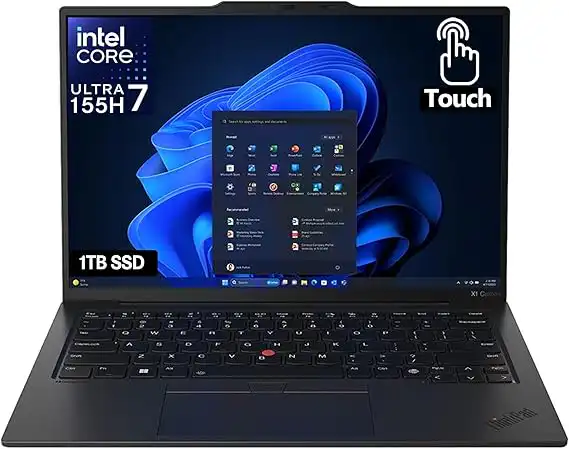
Best Laptop for Enterprise and Corporate Developers
The ThinkPad X1 Carbon is the choice for professionals who value reliability and comfort. Its keyboard is arguably the best in the business, and it’s built like a tank while staying lightweight.
Key Specs:
- CPU: Intel Core Ultra 7 / 9
- RAM: 16–32 GB
- Storage: 1 TB SSD
- Display: 14” 2.8K OLED or WUXGA
- Weight: 1.12 kg
Pros:
- Legendary keyboard and typing feel
- Durable, lightweight design
- Business-grade security features
Cons:
- Expensive
- Non-upgradeable RAM
Verdict:
Perfect for developers working in enterprise environments or those who prioritize portability and dependability.
5. ASUS ROG Zephyrus G14 (2025 Edition)

Best Laptop for Performance and Multitasking
Don’t be fooled by its gaming label — the Zephyrus G14 is a dream for heavy developers who run multiple VMs, emulators, or Java-based servers locally. Its combination of Ryzen AI CPUs and Nvidia GPUs makes it a mini workstation in disguise.
Key Specs:
- CPU: AMD Ryzen AI 9
- GPU: Nvidia RTX 4070 / 4080
- RAM: 32 GB
- Storage: 1 TB NVMe SSD
- Display: 14” OLED (165Hz)
Pros:
- Desktop-grade power in a portable form
- Excellent thermals and cooling
- Perfect for Android or ML devs
Cons:
- Shorter battery life under heavy use
- Slightly heavier than ultrabooks
Verdict:
If performance is your top priority, this is the ultimate Java powerhouse.
Quick Comparison Table
| Laptop | CPU | RAM | Storage | Display | Weight | Ideal For |
|---|---|---|---|---|---|---|
| MacBook Pro 14” (M3/M4) | Apple M3/M4 Pro | 16–32 GB | 1 TB | 14.2” Retina | 1.6 kg | All-round dev work |
| Dell XPS 15 | Intel Core Ultra/i9 | 16–32 GB | 1 TB | 15.6” OLED | 1.8 kg | Windows devs |
| Framework 13/16 | Ryzen AI / Intel Ultra | 16–32 GB | 1 TB | 13–16” | 1.3–1.9 kg | Upgradable laptop lovers |
| ThinkPad X1 Carbon | Intel Core Ultra 9 | 16–32 GB | 1 TB | 14” | 1.12 kg | Corporate/enterprise devs |
| ASUS Zephyrus G14 | Ryzen AI 9 | 32 GB | 1 TB | 14” OLED | 1.6 kg | Power users |
Practical Tips for Java Developers
- Use SSD for your builds: Compilation and indexing are drastically faster.
- 16GB RAM is fine, 32GB is better: Especially if you run multiple Docker containers or VMs.
- Invest in comfort: A high-quality keyboard and screen reduce fatigue during long coding hours.
- Consider Linux or macOS: Both offer stable developer environments; Windows with WSL2 is also great now.
- Keep your laptop cool: Performance throttles when your CPU overheats. Proper cooling = consistent speed.
FAQs
If you want all-around performance, the MacBook Pro 14-inch (M3 or M4 Pro) is hard to beat. It’s fast, reliable, and stays cool even during long builds. But if you prefer Windows, the Dell XPS 15 or Framework Laptop are equally solid choices.
It depends on your workflow. For most developers, a laptop with at least 16GB RAM, a modern Intel, AMD, or Apple chip, and a fast SSD will do the job perfectly. The Lenovo ThinkPad X1 Carbon and ASUS Zephyrus G14 are also favorites among professional coders.
Most developers use IntelliJ IDEA for Java — it’s powerful, reliable, and full of smart tools. Eclipse and VS Code are great free alternatives, depending on your comfort and project size.
You don’t need a gaming monster, but you do need something dependable. Aim for a quad-core or better CPU, 16GB RAM, and an SSD for smooth compiling and multitasking. If your budget allows, go for higher specs — it’ll last longer and save you time in the long run.
Final Thoughts
Choosing the best laptop for Java programming isn’t just about getting the fastest specs — it’s about finding a machine that helps you code comfortably, think clearly, and stay productive wherever you are.
If you’re all about longevity and polish, the MacBook Pro 14-inch is a top-tier pick.
For flexibility and value, go with the Dell XPS 15 or Framework Laptop.
And if you need sheer power, the ASUS Zephyrus G14 won’t let you down.
At the end of the day, any of these laptops will let you write, compile, and ship great Java code faster — and that’s what really counts.

